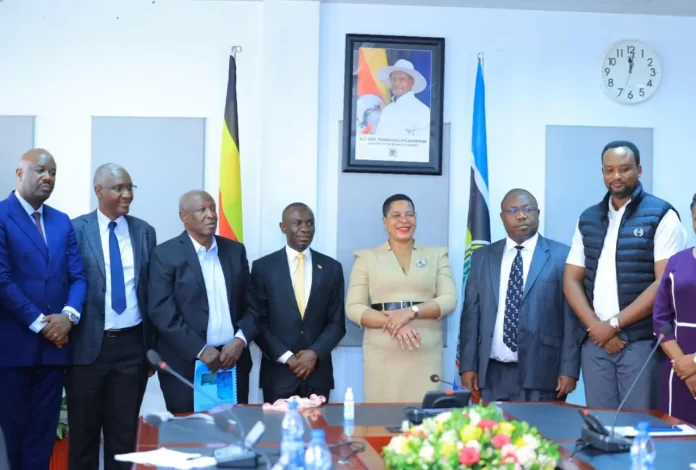
A section of tea growers and processors from Kabarole district have petitioned the Parliament of Uganda over the low prices of the cash crop, saying that some players are already dropping out of business. They have called for an immediate government intervention.
The farmers presented their petition to the Speaker of Parliament, Anita Annet Among, on February 26, 2024, over the drop in prices of green tea leaves from Ugx 500 to Ugx 200 per kilogramme.
Richard Rwabuhinga, the Local Council Chairperson of Kabarole district, said that for four years now, they have been seeking the government’s intervention over the drop in prices of green tea leaves, but nothing has been done yet.
“If the government does not intervene, the tea factories are likely to face the danger of losing an investment worth 3.7 trillion shillings,” Rwabuhinga said.
He further said that their main concern is centred on prices, a comprehensive policy on tea, and the high costs of plucking, fertiliser application, and general maintenance of the plantation.
Enoch Kibamu, a tea grower from Nyambya Tea Estate, said that the charges on power tariffs are too high at their farms compared to gazatted areas like Namanve, and if the government does not intervene and farmers do not cut down, the tea plantation will grow and become a hiding place for rebel activities.
According to the speaker, farmers cutting down their tea plantations out of frustration will not help solve the problem, but Parliament, through the Committee on Agriculture, Animal Industry, and Fisheries, will adequately address their concerns.
Speaker Among assured the tea growers of parliament’s support, saying that the drops and expensive inputs that are affecting the tea sector will be critically and extensively handled.
“We are going to exhaustively look at your prayers and handle them one by one; thank you for choosing Parliament to handle your issues,” Among noted.
She said that, unlike coffee and cotton, which have various systems supporting their marketing, the tea sector is noticeably deprived of any institutional framework to support its marketing and negotiate better prices and subsidies.
The Speaker emphasised that the government, through MAAIF, should spearhead the faster processing of enacting a comprehensive tea policy that will address issues of green leaf and processed tea quality, thus increasing the selling prices of Uganda’s tea on the global market.
Among clarified that Rule 30 of the Parliamentary Rules of Procedure provides mechanisms for managing petitions, which start with a Member of Parliament presenting them to Parliament, sent to the relevant Committee, and then disposed of by the House through considering specific prayers in the Committee.
In Uganda, the low usage of fertilisers in most plantations, the picking of overmatured tea leaves, and poor post-harvest handling have compromised the quality of the tea.
Kabarole district has a total of seven tea factories that are spread within the tea-growing subcounties of Hakibale, Busoro, Kiko, Harugongo, Ruteete, Kabende, and Kijura, with Mpanga Growers Tea Factory being a public limited company owned by smallholder tea growers and incorporated in 1995 by an Act of Parliament established on February 17, 1966.














